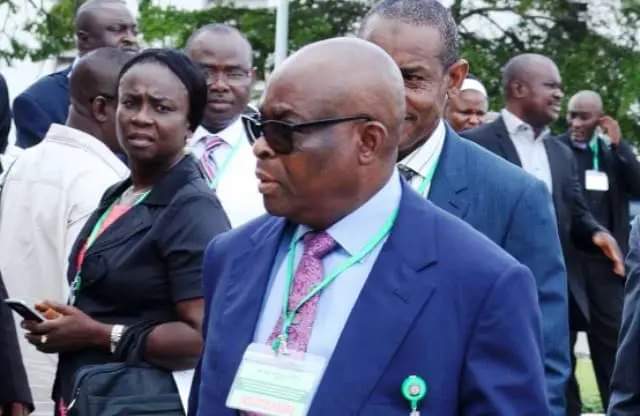THE Court of Appeal sitting in Abuja, on Monday, discharged and acquitted a former Chief Justice of Nigeria (CJN), Justice WalterSamuel Nkanu Onnoghen, of his conviction for false asset declaration by the Code of Conduct Tribunal.
A three-member panel of the appeal court, led by Justice Abba Bello Mohammed, acquitted the ex-CJN and ordered that all his frozen bank accounts be unfrozen immediately.
Mohammed’s verdict is based on the terms of settlement reached by his legal team and the office of the Attorney General of the Federation, Lateef Fagbemi (SAN).
It will be recalled that former President Muhammadu Buhari had on 25 January 2019, about 29 days before the presidential election, suspended Onnoghen from office as the CJN and swore in the next most senior jurist of the Supreme Court, Justice Tanko Muhammad, to take over the leadership of the judiciary. The then-President took this step following the recommendation of the Code of Conduct Tribunal (CCT), which eventually convicted him on 19 April 2019.
Onnoghen’s suspension came barely eight hours after he announced his decision to inaugurate judges who would preside over election petition tribunals.
Ex-President Buhari’s action elicited varied reactions from both within and outside the judicial circles, with the Nigerian Bar Association (NBA) describing it as a coup against the judiciary.
Onnoghen was later convicted by the Code of Conduct Tribunal (CCT) on a six-count corruption charge that was preferred against him by the Federal Government.
It was alleged that he made a false declaration to the Code of Conduct Bureau.
At the resumed sitting on Monday, Onnoghen’s lead counsel, Adegboyega Awomolo (SAN) informed the court that, in line with the court’s earlier directive, the parties had agreed to settle and had adopted the terms of the settlement.
A. Gazali (SAN), counsel for the AGF, aligned with Awomolo’s submissions and adopted the terms of settlement.
The appeallate court subsequently held that, regarding the appeal, it is settled that the Code of Conduct Tribunal lacked jurisdiction to try and convict the appellant (a judicial officer) without first resorting to the National Judicial Council (NJC), the apex judicial body.
Secondly, the appeal court held that the tribunal lacked jurisdiction to have tried and convicted the appellant even after he had tendered his voluntary retirement letter, which was accepted by the Federal Republic of Nigeria.
“The Code of Conduct Tribunal also lacks jurisdiction to entertain the matter without resorting to the National Judicial Council.”
“The bank accounts maintained by the appellant with Standard Chartered Bank (Nig) Limited, Wuse 2, Abuja, that were frozen by the judgment, shall be unfrozen forthwith.”
“Parties shall take all steps necessary to give positive effect to these terms of settlement,” the appeal court held.
After the ruling, Awomolo urged the appeal court to make further consequential orders.
“In consequence, the appellant herein is hereby discharged and acquitted,” the appeal court judge ruled.
Awomolo considered the ruling as a policy shift in the judiciary, stating that the executive government at the time stepped beyond its boundaries by removing the ex-CJN without consulting the NJC.
He thanked the AGF and President Bola Tinubu for fast-tracking the settlement.
Eighteen-Eleven Media


